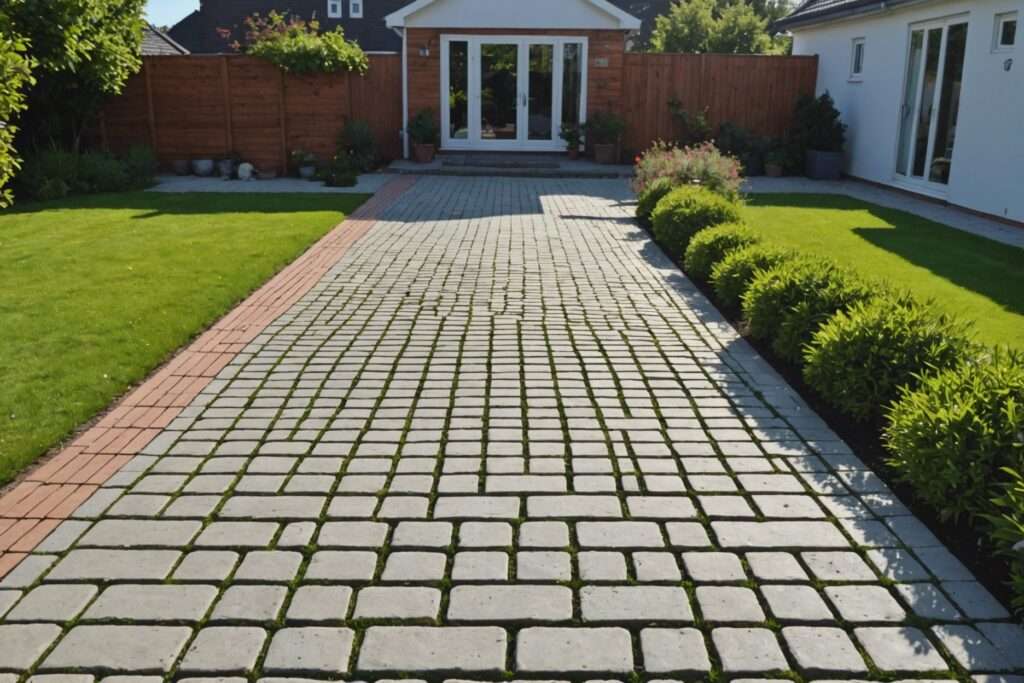
Comparing Paver Types: Permeable vs. Concrete Options
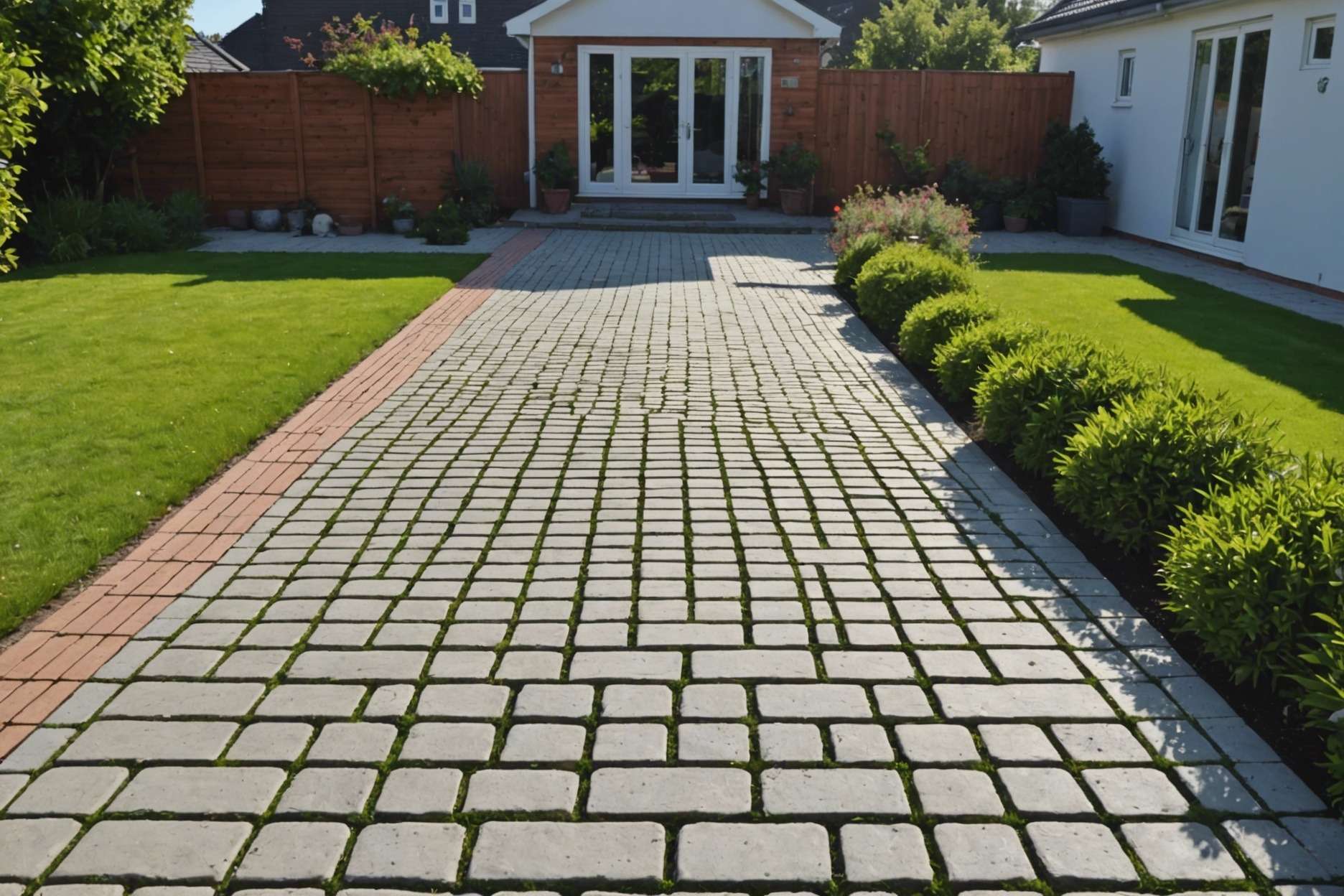
Permeable pavers are eco-friendly, absorbing rainwater to reduce runoff and pollution, whereas concrete pavers are durable, strong and offer more design versatility for high traffic areas. Both types have environmental advantages, but choice depends on local climate and specific project needs.
Introduction to Paver Types
Pavers are essential for creating durable surfaces like driveways, patios, and walkways. They come in various materials such as concrete, clay, stone, and recycled rubber. Here’s a quick overview of some popular types:
- Concrete Pavers: Known for their durability and weather resistance, ideal for high-traffic areas.
- Brick Pavers: Offer a classic look and are great for driveways due to their strength and low maintenance. Learn more about brick paving patterns suitable for driveways here.
- Stone Pavers (including limestone, flagstone, bluestone, marble, granite): Add natural beauty with each stone having unique colors and textures.
- Clay Pavers: Provide a traditional aesthetic and are extremely hardy.
- Rubber Pavers: Safe and slip-resistant, suitable for areas where safety is a priority.
- Porcelain Pavers: Low maintenance and available in various designs, mimicking natural stone or wood.
Each type of paver has its own set of benefits like noise reduction or permeability, which is useful for managing stormwater. When choosing pavers, consider the specific needs of your project and the local environmental conditions.
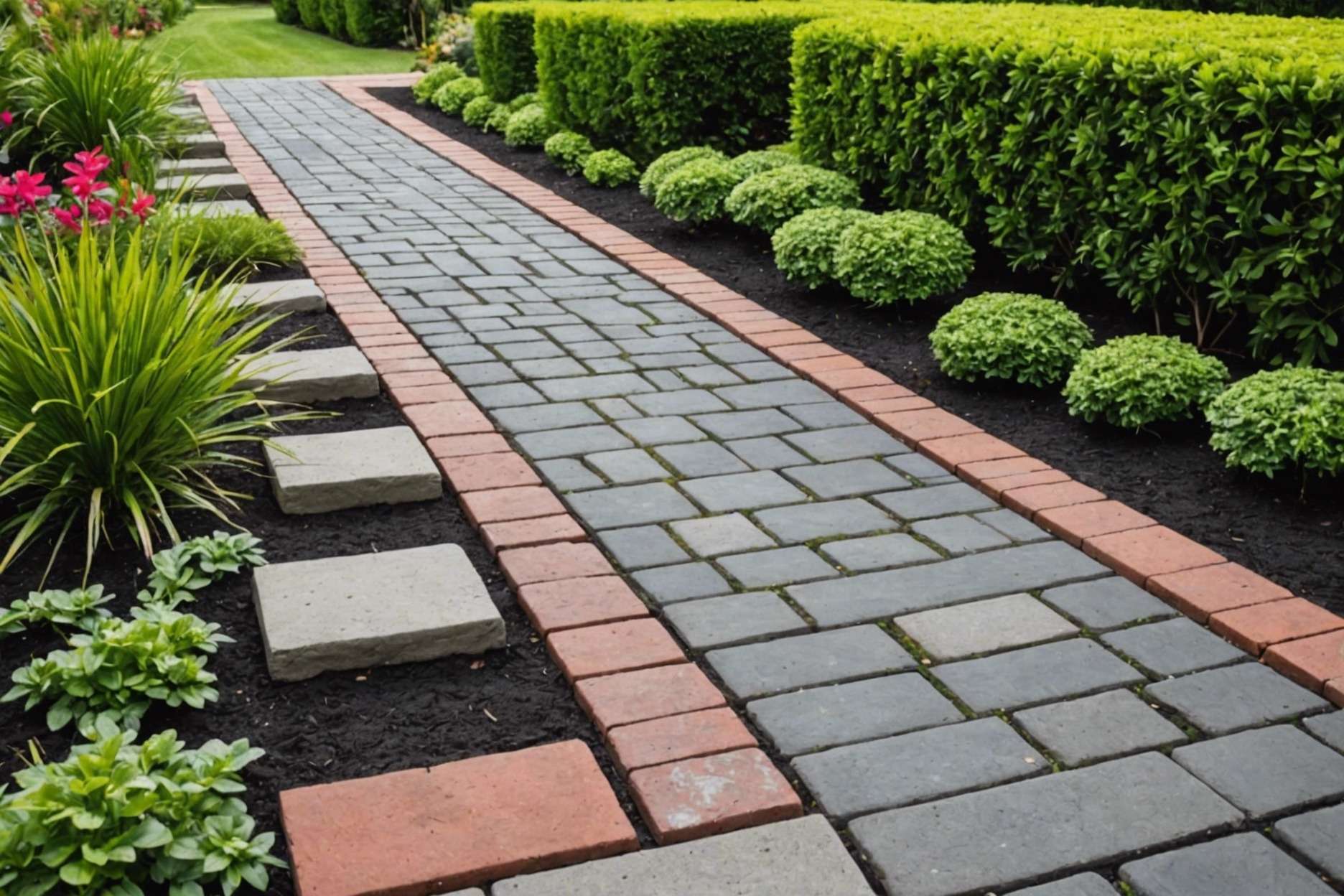
Benefits of Permeable Pavers
Permeable pavers are a smart choice for managing water in urban areas. They absorb rainwater and melting snow, which helps prevent runoff from overwhelming city streets and polluting waterways. This type of pavement includes options like pervious asphalt and interlocking pavers, which allow water to pass through into the soil below.
- Environmental Benefits:
- Reduces surface runoff, lowering the risk of flooding and erosion.
- Enhances groundwater recharge, supporting healthier urban green spaces.
- Filters pollutants from rainwater, such as sediments and bacteria, before they reach water bodies.
- Practical Advantages:
- Cuts down on the need for road salt and extensive drainage systems, which can lower construction costs.
- Offers a durable solution with proper maintenance, despite concerns about its longevity and effectiveness in extreme conditions.
Urbanization replaces natural landscapes with hard surfaces, increasing water runoff and pollution. Permeable pavers serve as a remedy by capturing precipitation and slowly releasing it back into the soil, which is aligned with Best Management Practices under environmental regulations to maintain water quality.
A study in Madison, Wisconsin, is currently evaluating the effectiveness of different permeable materials, including pavers and concrete, in reducing runoff volume and pollutants. This research aims to provide concrete data on the environmental impact of these solutions in urban settings.
Advantages of Concrete Pavers
Concrete pavers are a favored choice for driveways, walkways, and patios due to their durability and strength. They are crafted from a mix of cement, sand, gravel, and pigments, ensuring they can handle heavy loads and resist significant pressure. This makes them more robust than traditional poured concrete.
- Cost-Effective: While professional installation adds to the cost, those opting for a DIY approach can save significantly. The long lifespan of 25 to 50 years makes concrete pavers a cost-effective investment.
- Low Maintenance: These pavers demand minimal upkeep. Routine cleaning and easy repairs if damage occurs keep maintenance hassle-free.
- Design Versatility: Available in various colors, shapes, and sizes, concrete pavers allow for custom design flexibility to match any home style, although they might not suit older, classic architectures as perfectly as cobblestones or clay bricks.
- Environmental Advantage: Producing and installing concrete pavers requires less energy compared to other materials like asphalt, making them a more environmentally friendly choice.
- Installation: The installation process includes excavating the area, laying a gravel base, followed by sand, setting the pavers, and compacting them to ensure they are secure and level.
Overall, concrete pavers offer a blend of aesthetic appeal, longevity, and practical benefits, making them an excellent choice for various paving needs. They also contribute to higher property resale values due to their numerous advantages over other paving materials.
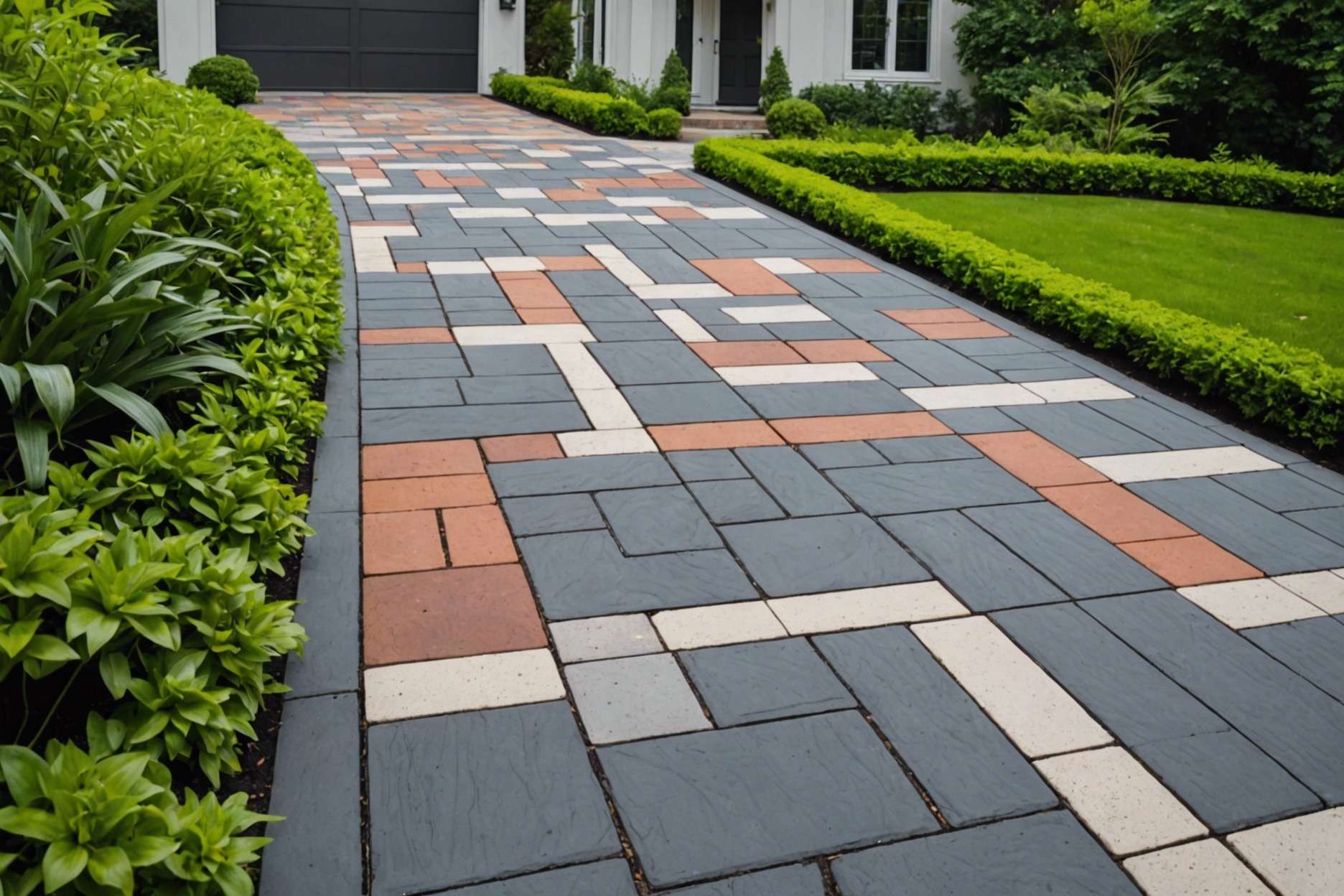
Choosing the Right Paver for Your Project
When choosing the right paver for your project, consider the following key factors:
- Material Options: You have a variety of materials to choose from such as concrete, flagstone, brick, and more. Each type has its unique qualities and ideal uses. For example, concrete pavers are durable and versatile, while flagstone offers a natural look. Explore our paver services for more details.
- Climate Considerations: The material you choose should suit your local climate. In hotter climates, lighter-colored pavers can help keep the area cool, whereas darker pavers are beneficial in colder climates for absorbing heat and helping with snow melt.
- Aesthetic Preferences: Paver colors can dramatically affect the look and feel of your space. Choose colors that complement your home and landscape. Light colors can make small areas appear larger, while dark colors lend a cozy feel.
- Installation and Maintenance: Proper installation is vital for longevity and performance. Consider whether you’re installing the pavers yourself or hiring professionals. Maintenance needs can vary, so opt for pavers that fit your lifestyle and maintenance capacity.
- Cost: Budget is always a consideration. The cost of pavers varies depending on the material and complexity of the installation. Plan accordingly to ensure the project stays within your financial limits.
For personalized advice and a free estimate on your project, consider visiting our free quote page.
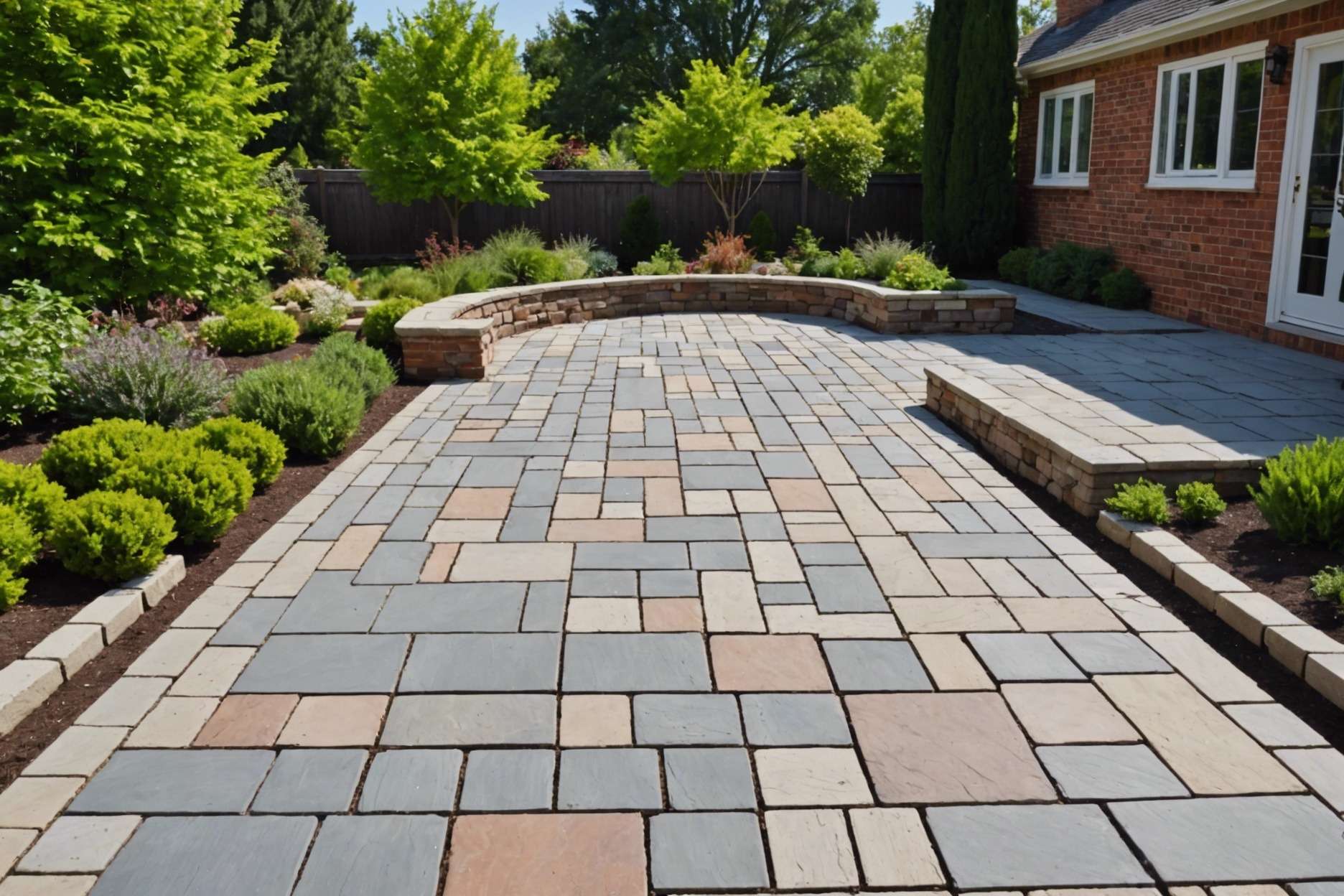
FAQ
What are the main types of pavers mentioned in the article?
Pavers come in various materials including concrete, clay, stone, brick, rubber, and porcelain. Each type offers unique benefits such as durability, aesthetic appeal, and environmental friendliness.
What are the environmental benefits of permeable pavers?
Permeable pavers reduce surface runoff, which lowers the risk of flooding and erosion. They enhance groundwater recharge and filter pollutants from rainwater, improving the health of urban green spaces and water bodies.
What are the practical advantages of permeable pavers?
Practical advantages include reducing the need for road salt and extensive drainage systems, which can lower construction costs. They offer durability and long-term effectiveness in managing water runoff in urban areas.
What attributes make concrete pavers a popular choice for paving?
Concrete pavers are favored for their strength, durability, and cost-effectiveness. They handle heavy loads well and have low maintenance requirements. They come in various colors, shapes, and sizes, allowing for design flexibility.
For how long can concrete pavers last?
Concrete pavers have a long lifespan ranging from 25 to 50 years, making them a cost-effective option for long-term paving solutions.
What should you consider when choosing pavers for your project?
Key factors include the type of material, local climate, aesthetic preferences, installation and maintenance requirements, and budget. Choose materials that suit your climate and complement your home’s style, while fitting within your planned expenses.
How does the installation process of concrete pavers work?
The installation of concrete pavers involves excavating the area, laying a gravel base, followed by sand, then placing the pavers, and compacting them to ensure they are secure and level.
